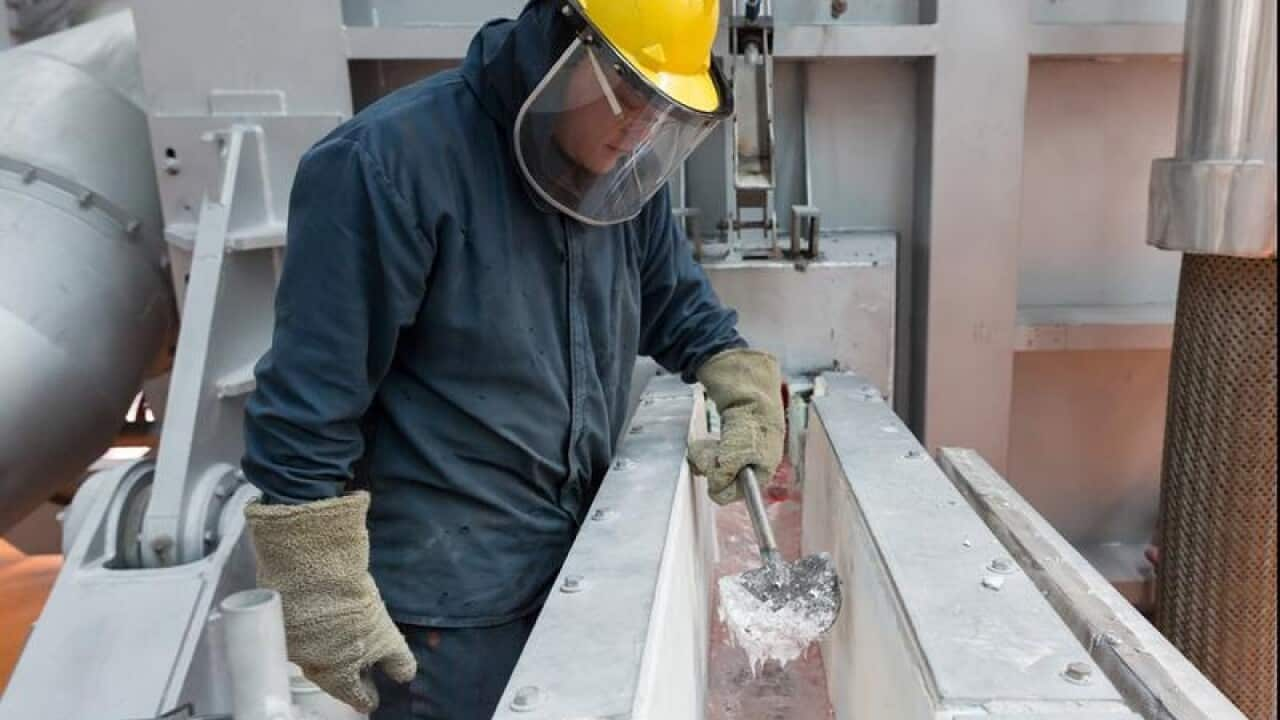Rio Tinto, Apple and aluminium giant Alcoa say they have developed a new aluminium smelting process that reduces carbon emissions.
Labelling the process the "most significant innovation" in the aluminium industry since the 19th century, Rio Tinto said the patented Elysis technology eliminates emissions generated directly from the production process by replacing carbon-intensive products.
"This discovery has been a long-sought goal for the aluminium industry," Alcoa president and chief executive Roy Harvey, whose company developed the technology, said in a statement.
In the Elysis system, heavy-duty electric terminals used in the alumium production process are made from patented, inert materials that do not break down and generate carbon emissions - unlike the carbon-intensive materials used in traditional terminals.
They also last years, instead of one month, and can be retrofitted into existing aluminium smelters.
Aluminium is an energy-intensive, high-emissions industry, with about 80 per cent of carbon emissions coming indirectly from electricity used in production
About 15 megawatt hours of electricity - or the daily usage of about 900 Australian homes - is required to make one tonne of aluminium.
Direct emissions account for a much smaller proportion: Australian Aluminium Council figures show direct greenhouse gas emissions in 2011 from the country's handful of aluminium smelters was the equivalent of 1.87 tonnes of carbon dioxide per tonne of aluminium produced.
Direct carbon emissions from smelting contributed to about slightly less than one per cent of Australia's total carbon emissions in 2011.
Rio Tinto, Apple and Alcoa are now working with the Canadian government to commercialise Elysis, collectively providing $C188 million ($195.5m) to a new business set up to develop the technology.
Apple, which was credited with facilitating the Alcoa-Rio Tinto collaboration, contributed $C13 million to the initiative and will provide technical support to the other partners.

